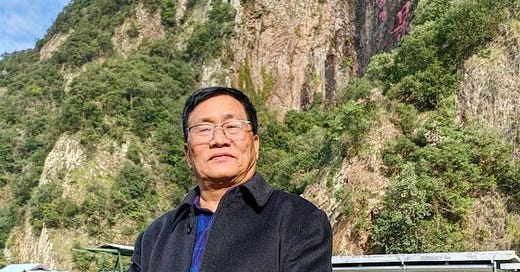Chinese lawyer launches legal battle against Tencent's role in CCP repression
Prominent human rights lawyer Zhou Shifeng is suing Tencent, accusing the Chinese tech giant of abusing its monopoly power to enforce the Chinese Communist Party (CCP)'s political directives. In November 2024, Zhou discovered his WeChat accounts were permanently and irreversibly banned, with no justification provided beyond vague references to regulatory policies. Zhou contends that Tencent has silenced him for exposing the role of senior CCP officials in Beijing's mass purge of human rights lawyers in 2015, during the 709 Crackdown.
As the director of Beijing Fengrui Law Firm, Zhou handled politically sensitive cases, including those of the victims from the Sanlu tainted milk scandal and journalist Zhang Miao, who was detained for covering Hong Kong's Umbrella Movement. On July 9, 2015, Zhou was arrested during the nationwide 709 Crackdown, becoming one of nearly 300 human rights lawyers and activists arbitrarily detained or interrogated across China. He was sentenced to seven years in prison for “subverting state power” and released in September 2022. Since his release, Zhou has remained a vocal critic of the CCP's systematic repression, arguing that China's legal system remains under the control of the Sun Lijun and Meng Jianzhu-led political clique which orchestrated the 709 Crackdown. Zhou maintains Tencent blocked his accounts in direct retaliation for his continued advocacy.
WeChat, with its 1.3 billion users, is not just a messaging app but a central pillar of China’s social and financial infrastructure. Zhou's de facto digital exile has severely disrupted his daily life, preventing him from maintaining his social and professional networks, receiving school meal payment notifications for his daughter, missing an early school dismissal notice which left his daughter stranded in winter, and blocking payments for medical insurance, utilities, and parking fees. By banning Zhou, Tencent has effectively marginalized him from modern Chinese society.
On February 1, 2025, Zhou filed a civil lawsuit at the Beijing Internet Court, arguing that Tencent's actions violated his constitutional rights, breached contractual obligations, and caused financial and emotional harm. He seeks the immediate restoration of his WeChat accounts, a public apology from Tencent, and RMB 100,000 in damages. Zhou has stated that he is prepared to pursue his lawsuit in the United States if necessary.
Zhou’s chances of success in a Chinese court are slim, given that the judiciary operates under CCP control. However, his lawsuit draws international attention to China’s increasing use of digital blacklisting as a tool of repression and highlights the complicity of Chinese tech giants in enforcing political censorship. The CCP’s ability to erase individuals at the press of a button sets a dangerous precedent for any society where tech companies collaborate with authoritarian regimes.




